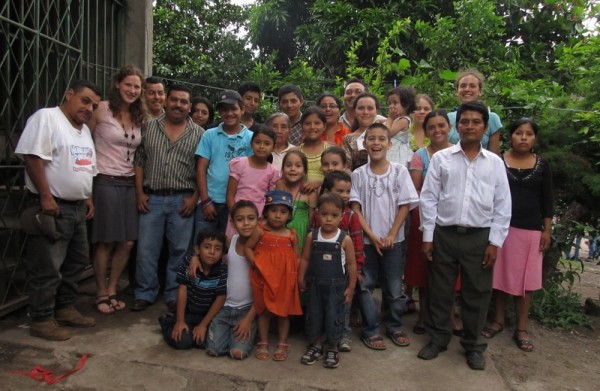A group of students and researchers at West Virginia has created its own direct trade coffee program — Fair Trade 2.0 — working directly with a cooperative in Nicaragua and selling roasted coffee on campus.
The group says the Fair Trade 2.0 program is a response to “a mutual concern over the state of fair trade in general,” making a candid statement against some aspects of current fair trade certification labeling:
The Fair Trade market has many documented benefits for farmers, including a guaranteed floor price and access to credit; however, the branding and mass production of the Fair Trade label has made it difficult for the market to retain the solidarity connection between producers and consumers of fair trade goods. It has likewise been unable to create the kind of economic independence necessary for farmers to escape cyclical debt. Today, fair trade labels are often employed simply to target ethical consumers, and they seldom reflect a sincere relationship between producers and consumers.
Fair Trade 2.0’s first trade partner is the Cooperativa La Hermandad in the Dariense mountains of San Ramon in Central Nicaragua. The cooperative supports some 30 family of farmers at the La Mina farm, which produces shade-grown coffee. The co-op also maintains the La Mina property as a forest reserve, keeping about half the property in its natural state to protect a watershed and maintain natural habitat, the group says.
The group is now selling the coffees under the label First Hand Coffee at multiple retail locations on the WVU campus, through a partnership with the university’s dining services department.
Here is more from Fair Trade 2.0 on its direct trade philosophy and how it plans to respond to local conditions as the project moves forward:
The concept of “First Hand Coffee” conveys that producers not only receive a base price above that offered by fair trade labeling, but that the large percentage of profits normally allocated for marketing and branding (around 80%) is instead absorbed by volunteer labor and reinvested into coffee producing communities. By offering our labor for free, we in essence become contributing members of the cooperatives with whom we work.
Smart subsidies are low interest loans for investments in small-scale, local, cooperative-based projects frequently overlooked by conventional banks and even microfinanciers. All of our investments put farmers first. Project ideas, goals and plans must be introduced from farmer and worker communities and investments negotiated with input from cooperatives, stakeholders and local partners.
While fundraising may be student-led and U.S.-based, our projects are farmer and worker-led. Fair Trade 2.0 takes a“responsive” approach to international development, and we will continue to adapt our projects to the needs of our cooperative partners by taking into account ever-evolving local conditions.
Nick Brown
Nick Brown is the editor of Daily Coffee News by Roast Magazine.
Comment
1 Comment
Comments are closed.







Nick, On behalf of all the students affiliated with Fair Trade 2.0 at WVU we are thrilled to read your post in the Daily Coffee News on FirstHand Coffee. Thanks for featuring us and sharing our work with the readership of Roast Magazine and beyond. We’d only like to clarify one small but important point regarding the nature of our work. Rather than presenting a “model” per se we see ourselves as engaged in an “experiment” that mobilizes the creativity and capacity of young people to establish direct relationships with cooperatives and work together with them to address the development challenges they identify. Innovative approaches to fair trade, direct trade, ethical branding, microfinance, etc. are all important components of our experiment but so are things like direct communication, cooperative decision-making, and action-learning. Students are building upon the fair trade model(s) others are experimenting with, we are indeed experimenting with and seeking new ways of building global solidarities. We are always searching for ideas and communities of interest that wish to join us in this experiment. There are also other amazing student-oriented efforts around the country, in particular those of the Community Agro-Ecology Network (www.canunite.org) in Santa Cruz, California. Thanks again and we look forward to future opportunities to share the fruits of our labor. – Dr. Bradley Wilson